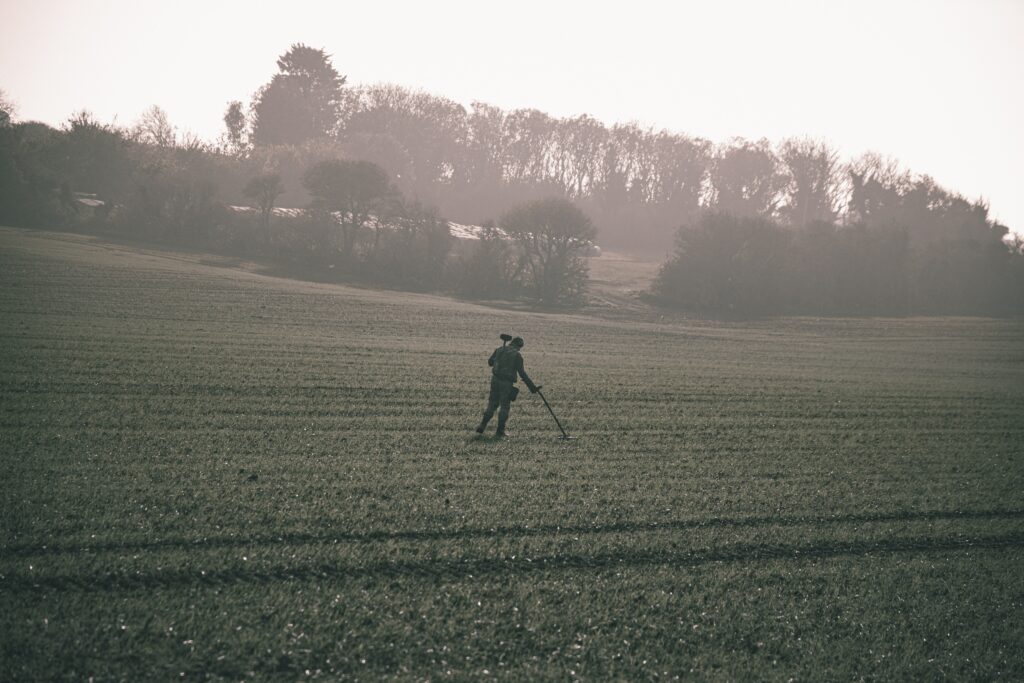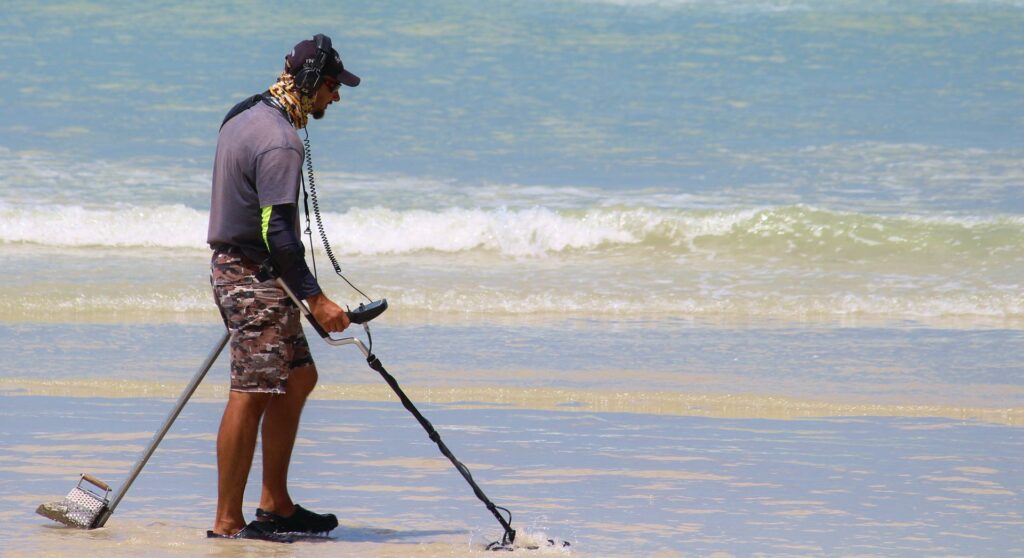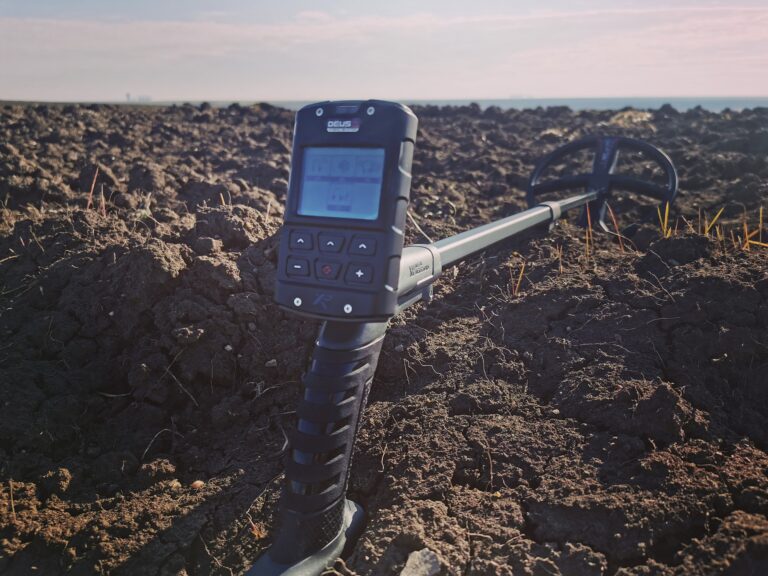There are many skills that can enhance our chances of survival – some obvious like advanced life-saving techniques. Some are not as obvious at first glance but could prove invaluable in the right circumstances. Today’s guest post discusses the subject of metal detecting and illustrates the value of this skill in your long-term plans.
As a prepper, everyone has areas of improvement they’re looking to master, and this often involves purchasing that piece of equipment to master the said skill. During TEOTWAWKI, WROL, SHTF, Grid-Down, or even a zombie apocalypse, being a “master” at any skill takes a tremendous amount of time and training. For those who are new or even middle-of-the-road preppers, you should adopt and embrace the timeless adage we all heard as kids, which is “jack-of-all-trade’s-master-at-none”. This mindset is critical to broadening and developing your range of prepping skills more quickly, especially with the current global situation. In other words, learn the skill but do not feel you have to master it.
This is where TPS, or “Tertiary Prepper Skills”, come into play. These are the skills that you can learn in a weekend or two and move on to the next one. TPS are also the most overlooked as many times it is off to the side of your prepper spreadsheet or in the back of your mind of “Hopefully I will get around to those at some point”. The broader and deeper your skillsets are in prepping, the more valuable of an asset you become. For example, being well versed in five tertiary prepper disciplines could mean the difference between you getting into a MAG or not (or keeping your spot in one for that matter). Maybe you are not in a group at all, and it is just you and your family. You are the one who must be the jack of all trades. The TPS you learn could be the difference between whether you and your family members survive a calamity or not.
METAL DETECTING:


At first mention, this is probably not a skill that many, if not most, preppers would ever consider adding to their list of critical key learnings. In fact, metal detecting probably invokes some visions of old people swinging the crazy metal sticks at the beach while every so often bending over to pick up a penny or two. However, with the right machine and a skilled user behind the controls, a metal detectorist who is a master at their machine should be a welcomed addition to any MAG, tribe, or prepper group. In fact, they could save your life one day.
SHOOT, MOVE, AND COMMUNICATE:
In the Army, there is a term called “shoot, move, and communicate”. In short, it is a military doctrine that is a must for a combat arms specialist’s survival and completion of the mission. There is a wealth of knowledge written on the subject and if you have not heard the term before, it could be helpful information to learn for the future.
When it comes to prepping, there may be a day where you must do just that; shoot, move, and communicate. Most people know the importance of having a solid weapon system regardless of said worldwide situations. Hence being covered for the shoot part of the doctrine. As you head on to move, one might feel a great pair of merino wool socks and tactical footwear is all that is needed. And for communicate, a small handheld ham or FMRS radio will suffice for most. With these assets, most people would feel extremely comfortable in a three- or four-person assault team, or even moving in a wedge formation across an open field. Given all this equipment, most possibly hundreds of hours of range time, and ham radio field days, have you ever stopped to consider the possible dangers of moving?
Some of our combat brothers and sisters in arms, unfortunately, learned in the overseas theaters over the past twenty years that an enemy that can’t stop you from shooting or communicating will do everything in its power to stop you from moving. If you can stop your enemy’s movement, you can neutralize the threat even if it is only temporary. Therefore, a metal detector is a crucial piece of machinery for any prepper group.
SCENARIO:
Your prepper group just purchased a 30-acre field that abuts your training camp from a family that is destitute and in need of resources after WROL. You seal the deal by bartering, you shake on it, and the owners begrudgingly leave. High fives all around because as a group you bought those 30 acres for pennies on the dollar. Everything is good, right? Well, maybe. Maybe before the disgruntled owners left, they buried some 12-gauge shotgun shell booby traps and twenty #15 spring-loaded bear traps around that entire property in the hopes of reclaiming it. That is where a metal detector is worth its weight in gold. The movies Megan Leavey and The Hurt Locker are great examples of ordinance/pressure trigger booby traps that the enemy buried in the hopes that if triggered, they would cause maximum carnage.


This scenario can be easily addressed as a proficient metal detectorist can find a multitude of both ferrous (iron) and non-ferrous metals (aluminum, copper, gold, lead, nickel, platinum, silver, tin, titanium, zinc, etc.). This type of trained individual can offer not only a skill that can give any prepper group a broader depth in safety, but also the ability to recover lost metal objects as well. As a tertiary prepper skill, it would be good to start learning the ins and outs of a metal detector as soon as you can. Better yet, save yourself the trouble of learning this skill and try to find a trustworthy, like-minded prepper who has over 5+ years of experience in metal detecting and invite them into your group. Here is a small list of dropped, lost, buried, or hidden items that an experienced metal detectorist could find during TEOTWAWKI.
- Homemade Incendiary Devices
- Spring Loaded Jaw / Conibear Traps
- Booby & Trip Wire Traps
- Caltrops
- Spike strips / Nail spikes
- Barbed / concertina wire
- Electrical lines and pipes
- Potentially compromised food items (fruit, vegetables, or packaged foods with shards of metal)
- All types of keys
- Spilled ammo or shell casings
- Caches
- Firearm & firearm cleaning parts
- Property boundary markers
- Fishing lures, lead weights, hooks (most likely will need a waterproof machine)
- Lighters
- Nails, nuts, bolts, and screws
- Rifle/pistol magazines
- Gold rings & jewelry (wedding bands, class rings, etc.)
- Silver coins (for barter)
- Cell phones
- Reading glasses / Hearing aids
WHAT TO BUY:
When it comes to metal detectors, there is a myriad of machines currently on the market. Everything from a multi-frequency machine to VLF (very low frequency, or single frequency) to even PI (Pulse Induction). There are land machines, underwater machines, and waterproof machines. Examples of land machines would include detectors that can find the tiniest gold nugget in the desert and detectors that can find landmines on the battlefield. It all boils down to one’s budget. A good metal detector can cost anywhere from $75 up to $5,000 and more. If you are considering buying a detector, the best way to find out what you like that might be in your budget is to check out your local metal detecting clubs first. Tell them you are looking to get into metal detecting and that you know very little about the hobby. (NOTE: You might just want to avoid letting them know you are looking to learn about metal detecting for the purpose of the off chance you drop your tractor keys on the back forty while sprinting from a hoard of walkers…)
Perhaps there might be a seasoned metal detectorist at your local club that would be willing to teach you about this amazing hobby. You might even get the chance to try using a few, along with getting a great education on the pros and cons of each machine. Who knows, you may just stumble across that last individual you have been needing to add to your MAG!
CONCLUSION:
Metal detecting is not rocket science, however, there is a slight learning curve in understanding the lingo. Do not let this overwhelm you. Between YouTube, metal detecting magazines, and clubs, you can easily grasp this TPS and over time, develop your detecting skills to where you are extremely proficient.
Stay strong, keep learning new tertiary prepper skills, and Happy Hunting!
By Sgt. Silverman


